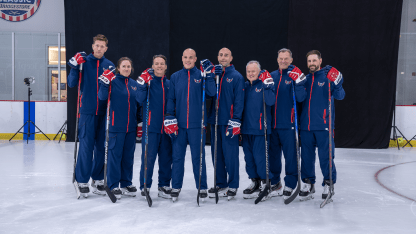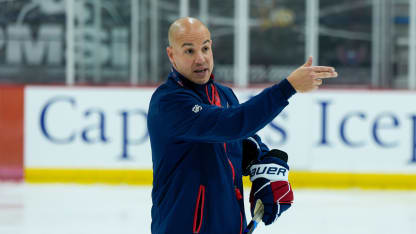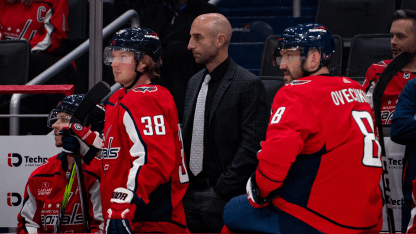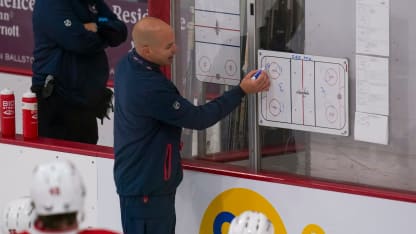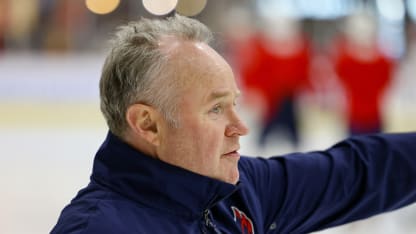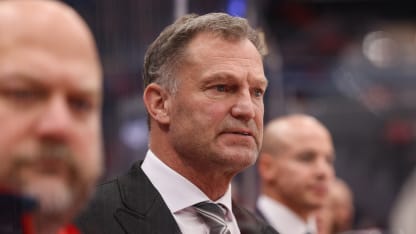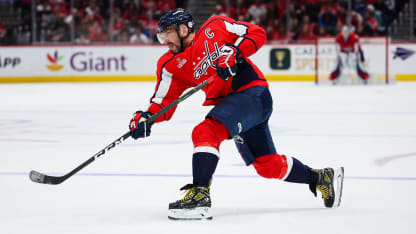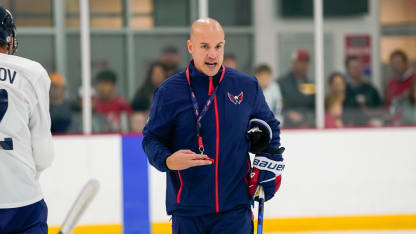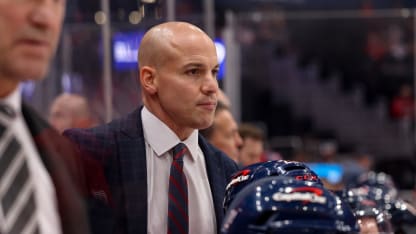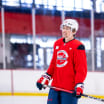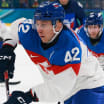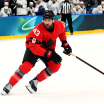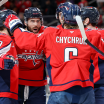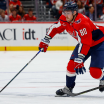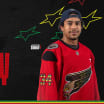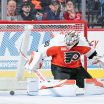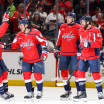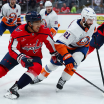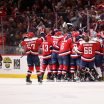Like Carbery, Love never played in the NHL. But also like Carbery, he began coaching before his 30th birthday and his star has ascended swiftly. Love has spent just the last two seasons coaching as high as the AHL, but his teams won a combined 96 games in those two seasons, and he became just the third coach in that League’s history to win consecutive Louis A.R. Pieri Memorial Award as the circuit’s best coach. Love is the only coach ever to win the award in each of his first two seasons in the League.
“He has had success and then he had success with Team Canada, too,” says MacLellan of Love. “When you get chosen to do that and you’re already doing well at the AHL level, that puts you on the radar. I think it was more a matter of what was going to happen with Calgary, and if they were going to hire him. And then there were several teams waiting and wanting to interview him if Calgary wasn’t going to promote him to the head coaching job.
“We kind of kept in contact with everybody, and then we interviewed him, and we got him and Spencer to talk – which was probably the most important thing – to see where they were both at philosophically and how they might complement each other. He is a good young coach who has had success, and who is ready to go to the next level. And I think they hit it off pretty well, which helped us in our ability to sign him.”
The second player chosen overall in the 1984 NHL Entry Draft, Muller enjoyed a long and prosperous NHL career as a player. His 19-year playing career as a durable, two-way center included a Stanley Cup with Montreal in 1993, the last Cup won by any Canadian-based team. Muller finished second on that Habs team with 94 points, and he was second in playoff scoring that season as well. He finished with 357 goals and 959 points in 1,349 games in the NHL, two more games than Ovechkin has played in 18 seasons.
A few years after his playing career ended, Muller broke into coaching as an assistant with the Canadiens. Since 2006-07, he has been employed in the NHL for at least part of every season as an assistant, associate or head coach, so his knowledge of the League and its personnel will be a valuable asset on what is a young Washington staff.
“He's got the right personality to fit with Carbs and Mitch, and with the players too,” says MacLellan of Muller. “He builds relationships; he has a reputation for that. He gets along with star players; he knows how to relate to them. And he gets along with bottom six guys, because he’s experienced both [as a player].
“Because of his experience, because of how many coaches he’s worked with and his head coaching experience, he’s going to be a good voice of reason for our whole staff. It’s a really good fit, I think. And our first power play is veteran guys that have been around, and I think he’s got street cred from his playing career and coaching for a very long time. It’s a natural fit for everybody. And I think it’s good for him to work with young guys, too. He’s worked with older guys quite a bit, veteran older guys. But where he’s at in his career, I think it’s fun for him to be around young coaches that are you know, getting better and learning the League.”
McCudden comes to Washington at an opportune time. His primary areas of focus – skills and skating – will always be in demand in the NHL, but the Caps are starting to trend younger on their roster and could certainly use his expertise as they try to develop some of their younger players while keeping the aging core as sharp as possible in those areas.
McCudden spent several seasons with AHL Chicago as a skating and skills coach, and he comes to the Caps after spending the last eight seasons as an assistant with Columbus, where he worked under three different head coaches.
“He’s got a great reputation,” says MacLellan of McCudden. “You know, it’s hard to find a guy like him. We’ve been poking around the skills coach thing for quite a while. We had a part time guy for a number of years and had been trying to figure out ways to address that. And I think everybody knows Kenny and what he’s done, and his reputation. The players have a lot of respect for him, and the coaches, too.
“When his name popped up as possibly being available, we started conversations with him; ‘If you're thinking of moving, we have interest.’ We kept it going forward, we interviewed him, Carbs interviewed him, and we talked to a bunch of people [about him]. We just kept trying to be as aggressive as we could to sign him up, and then he agreed to come our way at the end.”
“Kenny is really well connected. He has strong connections to probably five or six organizations that all were interested in hiring him. And I think the opportunity here was attractive to him, given our coaching staff, and he liked the players we have on our team. It worked out great for us in the end.”

